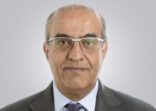The long bull run and record high of US markets has increased investor caution this year, resulting in a shift from equities to fixed income and cash, according to Edmund Yun, head of investment advisor markets, investments and structuring in Hong Kong.
“At the beginning of the year, market participants were well aware that global economic growth may eventually slow down following 10 years of expansion, and investors were opting for a defensive mode,” he told FSA.
Yun said in Q4 2018, corporate bond yield spreads widened significantly “and gave bond investors an opportunity to buy into assets with relatively stable return”.
In May, as credit spreads widened again, “more investors were happy to put their money into fixed income securities again and hence the spreads have been tightened to where they were at the beginning of October.
“Strong fixed income inflows have resulted in the soft close of a number of bond funds,” he added.
According to FE data, four fixed income funds launched in 2016 or later and registered for sale in Asia have closed to new investment. Additionally, in June, the Value Partners Greater China High Yield Income was soft-closed.
IG and FMP
Indosuez prefers US investment grade because of the falling US 10-year treasury yield, which has dropped to 2% from 3.2% since November.
“We don’t think there is too much value left in the 10-year bond and hence we prefer 3-5 year investment grade BBB or BB+ bonds because they offer less duration risk,” Yun said.
“If economic growth in the US slows down less than market expectations, the US 10-year treasury yield may rise to 2.2% from 2% and so we would have a capital loss if we go into the longer end of the curve.”
It’s difficult to go through 2019 without mentioning fixed maturity products, which asset managers have been rolling out amid growing popularity.
Unlike a regular bond fund, FMP investors return all principal at maturity (if no defaults), plus they receive income monthly or quarterly, as specified.
Indosuez, which owns 70% of Amundi, has partnered with the asset manager to launch a fixed maturity bond portfolio that holds 40-50 investment grade bonds with a 4% quarterly distribution, Yun said.
FMPs are in demand because they offer regular income with some protection against macro risk.
“Investors were in general anticipating global macro uncertainty, namely the US-China trade tariff conflict and Brexit uncertainty, which may lead to more equity market volatility,” Yun said.
“So they would like to take a cautious approach and buy into these products.”
Neutral almost everywhere
The bank’s Hong Kong focus list has about 150 funds, a majority of which are on the Indosuez global fund list that is generated in Geneva. In Hong Kong, the team does local due diligence on funds, even if the funds originate from the global list. The local team could also influence a regional fund onto the global list.
Indosuez is following the trend of “going to neutral” on equities. According to its July house view, the bank is neutral across markets in all regions with one exception – an underweight in the UK.
“Overall investors are hesitating to see if Brexit will become a global event, if it will deter global growth. We believe it’s a European event, but the risk is increasing and we are underweight the UK equity market,” Yun said.
For US equities, Indosuez started the year with a defensive approach and has moved to neutral. But Yun finds selective opportunities in certain US technology companies.
“Those companies that benefit from disruptive technologies such as cloud computing and artificial intelligence, or new lifestyle trends such as aging populations, will continue performing over the long-term and the client should be invested in them, even though we are overall neutral in most geographical regions.”
Yun added that Asia-based investors have become more open to investing in the US market due to the nearly 10-year bull run and a growing familiarity with the big tech names.
“The home bias common to Asian investors is changing,” he said.

















